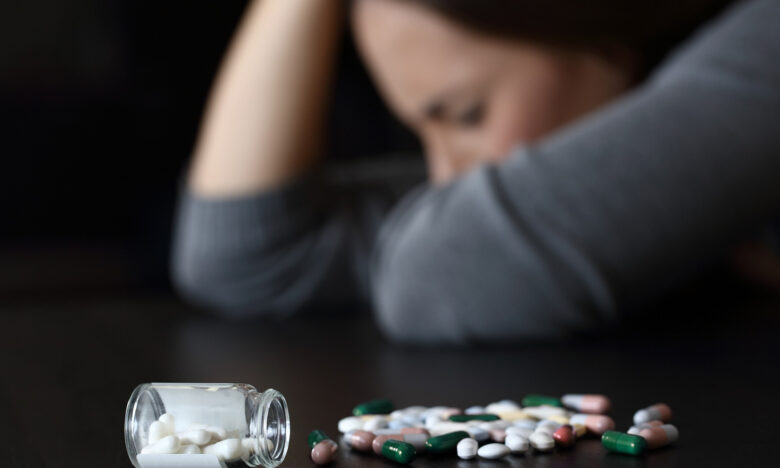Addiction is a condition that is both psychological and physiological in nature.
This means that it can have an impact on both the mind and body and affects different people in different ways.
While some people may be able to overcome addiction without seeking professional help, others may need additional support to get them through this difficult period of their lives.
If you suffer from addiction or another mental health disorder, finding out about dual diagnosis can be a key factor in your success story!
Contents
How Mental Health Affects Addiction

Source: independent.co.uk
When you are struggling with addiction, it’s not just your physical health that needs to be addressed. Your mental health is also at risk. It’s important to understand the connection between mental health and addiction so that you can get the help you need in order to recover. Head over to Gallus Detox to get the help you need now.
Mental Health and Addiction
The relationship between addiction and mental illness is one of the most common dual diagnoses seen in treating substance abuse disorders.
In fact, many people who suffer from alcoholism or drug dependence also have other psychological issues like depression, anxiety disorder, or bipolar disorder—and vice versa: people suffering from such disorders as schizophrenia or PTSD often struggle with substance abuse problems as well.
The two conditions may overlap through several different mechanisms including:
- A predisposition for certain personality traits (e.g., impulsivity). This can lead those who are predisposed to these kinds of behaviors toward either type of problem behavior depending on how they were raised by parents/guardians during childhood development years.
- Hopelessness about being able to overcome addiction on their own due to self-defeating thoughts about their lives being beyond repair.
- The use of drugs/alcohol for relief purposes only leads them back into old negative habits when trying something new doesn’t work out right away.
Dual Diagnosis

Source: destinationsforteens.com
Mental health and addiction are not necessarily causally related.
- Alcohol and drugs are often used to self-medicate against the symptoms of mental health problems
- Alcohol and drugs can accentuate the symptoms of a mental health problem
- Alcohol and drugs can increase your risk of developing a mental health disorder
Signs and Symptoms of Substance Abuse

Source: helpguide.org
The signs of substance abuse have nothing to do with what substance you’re using but rather the effect the use of that substance is having on your life and as you’ll see shortly, there are a lot of overlapping concerns with mental health disorders.
Here are some of the signs of substance abuse that can be observed:
- Sudden changes in activity patterns: not participating in things you used to enjoy
- Loss of energy and motivation
- Neglect of appearance
- Stealing
- Lying
- Taking unnecessary risks
- Withdrawing from family, friends, and activities in order to use
- Appetite and weight changes
Signs and Symptoms of Co-Occurring Disorders
If you suspect that you have a co-occurring disorder, it’s important to talk to your doctor about it. Co-occurring disorders are often treated with the same methods as other mental illnesses, but they also require extra care due to their unique nature. You might be prescribed medication or therapy, or both.
Depression

Source: additudemag.com
Depression is a condition that is often linked to addiction and substance abuse. Depression can affect your ability to live a happy and successful life, but it can also lead you to self-destructive behavior, like consuming alcohol or drugs.
Let’s look at some of the symptoms of depression:
- Feeling sad most of the time, a sense of helplessness and hopelessness
- Loss of interest in activities you used to enjoy
- Feeling tired all day long, even after getting enough sleep
- Changes in appetite (eating too little or too much)
- Strong feelings of worthlessness or guilt
Anxiety
Anxiety is the most common mental health issue in America.
In fact, it’s so prevalent that you probably know someone who suffers from it—and their experience might even sound familiar to you.
Anxiety can make you feel stressed out, overwhelmed, and like there’s no way out. If this sounds like how you feel when dealing with stressors in life, then it might be time to ask yourself if anxiety could be playing a role in your issues with addiction.
Bipolar Disorder
Bipolar disorder is a mental health disorder that is characterized by extreme mood swings. It can cause the person to feel incredibly depressed, or high and overly energetic.
The disorder shows up in young adulthood, on average between ages 18 and 25. A person with bipolar disorder may have periods of depression (called major depressive episodes), periods of mania or hypomania (called manic episodes), or a mixture of both types of episodes.
People with bipolar disorder have problems going through life because they get so high sometimes that they feel invincible. Then they fall into severe depression and can’t perform activities they would normally be able to. This causes issues with many aspects of life, especially relationships.
How Dual Diagnosis Sets You Up for Success

Source: recoveryinmotion.com
By focusing on improving mental health, you’re setting yourself up for a more successful journey through recovery. Mental health and addiction can feed each other or starve each other. By working on strengthening your mental health, you can help starve the cravings that fuel your addiction.
Working with dual diagnosis teaches you to:
- Manage your stress and emotions. Learning healthy coping skills makes it less likely for you to turn to drugs to feel better.
- Connect with others. Support and communication are important parts of regulating and processing our emotions.
- Make healthy lifestyle changes. If your body is healthy then your mind can work hard at being healthy too.
Conclusion
While it may seem like a difficult topic, we’re confident that you can take steps today to start improving your mental health.
A good place to start is by working with a therapist who specializes in dual diagnosis—these professionals have the knowledge and experience necessary to help you find effective treatment options for both conditions that will allow you to move forward with your goals!
